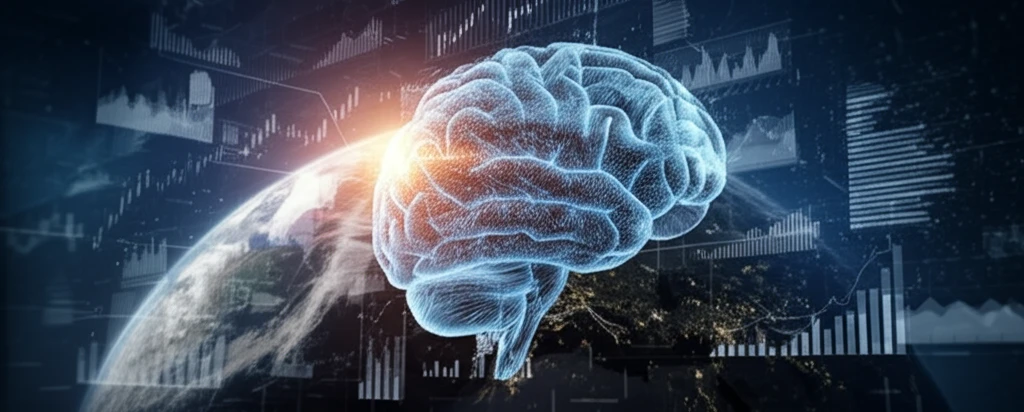
Can AI Fix the Economy? Inside the New World of AI-Powered Economic Simulations
"Economists are turning to AI to model and predict financial trends with unprecedented accuracy. Are we ready for the age of the AI economist?"
For decades, economists have relied on intricate models to understand and predict the ebbs and flows of financial systems. However, traditional methods often fall short when faced with real-world turbulence and unexpected shocks. Now, a groundbreaking shift is underway: artificial intelligence is stepping into the realm of economics, promising more dynamic and adaptable solutions.
Imagine a world where economic policies can be tested in a virtual environment, akin to a flight simulator for pilots, before they're implemented in the real world. This is the promise of AI-driven economic simulations. By creating 'digital twins' of economies, AI can help us understand how various factors—from interest rates to global events—impact financial stability and growth. This approach is gaining traction, offering a fresh perspective on how we manage and interact with our economic systems.
One such innovation is the ABIDES-Economist simulator, a multi-agent system designed to model economic interactions with unprecedented detail. Developed by researchers at J.P. Morgan, this platform uses AI to simulate the behavior of households, firms, central banks, and governments, all interacting within a single virtual economy. But what does this mean for the future of economics, and how might it affect our daily lives?
What is ABIDES-Economist and Why Does it Matter?

The ABIDES-Economist simulator represents a significant leap forward in economic modeling. Traditional economic models often rely on simplifying assumptions and struggle to capture the nuances of real-world interactions. ABIDES-Economist, however, embraces complexity by simulating a diverse range of economic agents, each capable of learning and adapting to changing conditions. This is particularly important in today's rapidly evolving global economy, where unforeseen events can have far-reaching consequences.
- Agent Heterogeneity: Unlike models that assume all participants are the same, ABIDES-Economist incorporates different types of households and firms, each with unique characteristics and behaviors.
- Real-World Accuracy: The simulator uses real-world economic data to calibrate agent behavior, ensuring the simulations closely mirror actual economic conditions.
- Reinforcement Learning: Agents within the simulator can learn from their interactions, adapting their strategies to optimize their individual objectives.
- Scenario Testing: ABIDES-Economist allows economists to test various economic scenarios and policies in a controlled environment, providing insights into potential outcomes.
The Future of AI in Economic Modeling
The development of AI-driven economic simulators like ABIDES-Economist marks the beginning of a new era in economic analysis. As AI technology continues to advance, we can expect even more sophisticated tools to emerge, providing deeper insights into the workings of our economies. This shift promises not only to refine economic policy but also to empower individuals with a better understanding of the forces shaping their financial lives. The fusion of AI and economics is poised to create a more stable, predictable, and equitable financial future for everyone.
